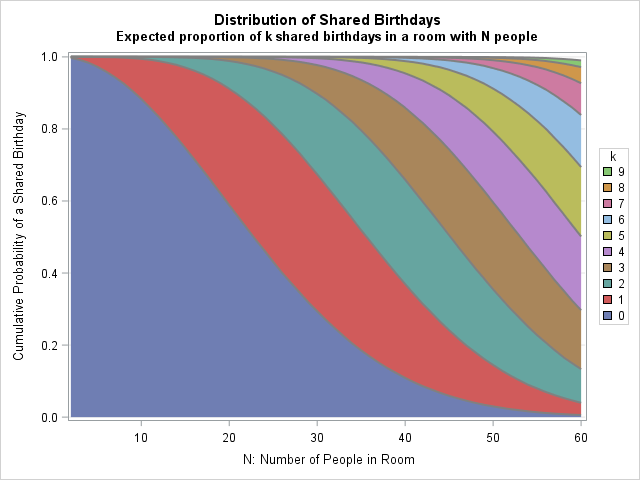steve_bank
Diabetic retinopathy and poor eyesight. Typos ...
Would anyone care to experimentally test the hypothesis?
More people are attacked by lions the night after the full moon than on any other day in the lunar month. This is a real and measurable effect; And it has a reasonable explanation. Can you guess why this should be the case?
My guess is that as the moon becomes full, most of the prey is hiding because it is too light out and too risky to be seen by lions. So, the day after the full moon, the lions haven’t eaten for several days and are very hungry and taking bigger risks to eat. And the humans are the only species stupid enough to be out in the bright moonlight.

A man has been killed after a tree reportedly fell on him while he was in his tent on a remote wilderness campsite.
Neither. Perhaps unlikely.Coincidence or destiny?

Falling tree kills man while in his tent on remote wilderness campsite
A man has been killed after a tree reportedly fell on him while he was in his tent on a remote wilderness campsite.abcnews.go.com
A man has been killed after a tree reportedly fell on him while he was in his tent on a remote wilderness campsite.
So twelve out of 20 day slots are the same day. This strikes me as very unlikely if rather contrived. But the odds are only about 200,000-to-one against if my arithmetic is correct.
So twelve out of 20 day slots are the same day. This strikes me as very unlikely if rather contrived. But the odds are only about 200,000-to-one against if my arithmetic is correct.
I don't get it. Why aren't the odds one in seven?
If these people are all born seven days (or multiples of seven days) apart, then their birthdays will be on the same day of the week every year. In any given year, the odds of that day being Sunday are one in seven.
So the arithmetic was NOT correct; the odds are one in about 54,000. This error is a matter of some dismay to me as the younger me was once rather good at such simple arithmetic. At least I caught the error myself before thorough humiliation.Swammerdami said:So twelve out of 20 day slots are the same day. This strikes me as very unlikely if rather contrived. But the odds are only about 200,000-to-one against if my arithmetic is correct.
If N random people are in a room, the classical birthday problem provides the probability that at least two people share a birthday. The birthday problem does not consider how many birthdays are in common. However, a generalization (sometimes called the Multiple-Birthday Problem) examines the distribution of the number of shared birthdays. Specifically, among N people, what is the probability that exactly k birthdays are shared (k = 1, 2, 3, ..., floor(N/2))? The bar chart at the right shows the distribution for N=23. The heights of the bars indicate the probability of 0 shared birthdays, 1 shared birthday, and so on

In probability theory, the birthday problem asks for the probability that, in a set of n randomly chosen people, at least two will share a birthday. The birthday paradox is that, counterintuitively, the probability of a shared birthday exceeds 50% in a group of only 23 people.
The birthday paradox is a veridical paradox: it appears wrong, but is in fact true. While it may seem surprising that only 23 individuals are required to reach a 50% probability of a shared birthday, this result is made more intuitive by considering that the comparisons of birthdays will be made between every possible pair of individuals. With 23 individuals, there are (23 × 22) / 2 = 253 pairs to consider, much more than half the number of days in a year.
Real-world applications for the birthday problem include a cryptographic attack called the birthday attack, which uses this probabilistic model to reduce the complexity of finding a collision for a hash function, as well as calculating the approximate risk of a hash collision existing within the hashes of a given size of population.
The problem is generally attributed to Harold Davenport in about 1927, though he did not publish it at the time. Davenport did not claim to be its discoverer "because he could not believe that it had not been stated earlier".[1][2] The first publication of a version of the birthday problem was by Richard von Mises in 1939.[3]
This.As soon as one can accurately predict it.Is there an accepted method to determine when it is sound to think that coincidences aren't random? I'm talking in every day life, where things happen without lab conditions, and the mind makes connections between things in a free form way. We all know the mind loves to make connections, but is there a point where one can say, "aha! there is some unseen link?" because sometimes there is, isn't there?
She is absolutely right, except that last 2% actually represents 85% of what controls us. So while the moon effects us because we are 98% water (despite the fact the moon is always running around the Earth, regardless of how much reflected light we see), it actually only counts for about 15% of our actions.Probability can be a harsh mistress. Something associated can be just coincidental.
You only said that because it's a full moon.
Well, I heard a newscaster on one of the local stations a while back explain that of course the moon affects us. It causes the tides, she said, and we're 98% water. You can't argue with logic like that.
Such is a demonstration of the difference between the conscious and the unconscious. When I count to three and snap my finger you will become perfectly conscious and forget what just happened.Man, I really hate it when I end up posting in a necromanced thread because I didn't notice the dates. Sorry folks!
